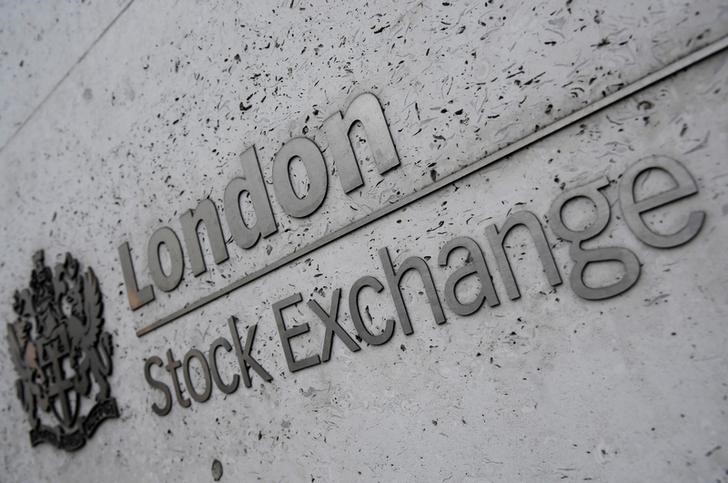By Claire Milhench
LONDON (Reuters) - UK investors started the year by raising equity exposure to a 2-1/2-year high as world stocks scaled fresh all-time peaks, but some asset managers warned of complacency and the dangers of irrational exuberance.
Reuters' latest monthly asset allocation poll of 15 UK-based investors was carried out between Jan. 15-26 and showed global equity holdings at 53.6 percent in January, the highest since August 2015.
At the same time investors cut their cash levels by 1.1 percentage point to 4.7 percent, the lowest in at least five years, as they sought to put money to work.
MSCI's global equity benchmark (MIWO00000PUS) has gained over 6 percent in January, hitting new records. Notwithstanding a late-month wobble, the index is set for a 15th straight month of gains thanks to strong corporate earnings and an uptick in global economic growth.
"We still believe that equities will continue to outperform bonds based on relative valuation, strong earnings momentum and easy financial conditions," said Kamil Amin, an investment strategist at Charles Stanley.
Wall Street extended its winning streak too, with the S&P 500 (SPX) up almost 7 percent this month. The poll showed investors raised U.S. stocks exposure by 1.7 percentage points to 31.5 percent of their global equity portfolios, the highest level since September 2017.
Trevor Greetham, head of multi-asset at Royal London Asset Management (RLAM), added to U.S. equities, citing better earnings.
"Stocks could dip if the U.S. Federal Reserve hikes rates more aggressively than expected in 2018 or if the slowdown in China gathers momentum, but either way, we think the bull market has further to run," he said.
However, some managers worried that investors were throwing caution to the wind. Andrew Milligan, head of global strategy at Aberdeen Standard Investments, warned that any return to normal levels of market volatility would come as a "considerable surprise" to many.
"The risks most likely come from irrational exuberance as investors become over-exposed to equities and an unforeseen event happens, which in turn, creates a flash crash or something more sinister," added Peter Lowman, chief investment officer at Investment Quorum.
BOND BEARS
In fixed income, investors cut global bond allocations by almost 1 percentage point to 25.9 percent, the lowest since June 2016. Government bonds were cut by almost 6 percentage points to 37.52 percent, the lowest level since October.
With the U.S. Federal Reserve raising rates and withdrawing quantitative easing, billionaire bond veteran Bill Gross of Janus Henderson has already called a bear market in U.S. Treasuries.
U.S. 10-year Treasury yields (US10YT=RR) spiked to a 3-1/2 year high as the bond sell off gathered steam.
Yet there was no consensus among poll participants on whether a bear market had begun in government bonds, with 40 percent of those who answered a special question on the subject saying yes, while 50 percent said no.
"We won't believe a bear market for bonds has begun until yields rise sustainably over a number of months, perhaps even years," said Mouhammed Choukeir, chief investment officer at Kleinwort Hambros.
But John Husselbee, head of multi-asset at Liontrust, noting 2017's synchronised economic growth from developed and emerging markets, said: "If this is sustained then higher inflation is to be expected and bond yields will react accordingly."
